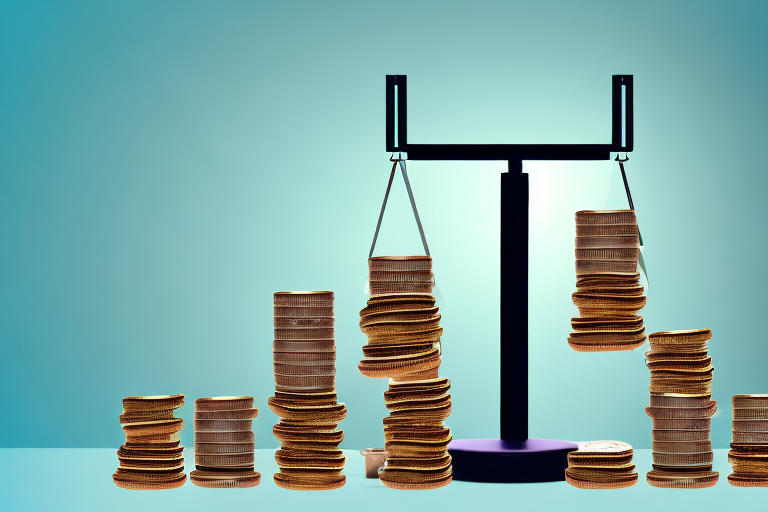Debt recycling is a popular strategy among savvy investors looking to optimize their tax position and build wealth over the long term. By utilizing the tax benefits of debt recycling, individuals can effectively manage their finances and potentially increase their net worth. However, it is important to understand the key tax considerations associated with this strategy to ensure its effectiveness.
Understanding Debt Recycling
Debt recycling Australia is a financial strategy that involves leveraging the equity in your home to invest in income-generating assets such as shares or property. The goal is to convert non-tax-deductible debt, such as your mortgage, into tax-deductible debt, ultimately reducing your overall tax liability.
By implementing debt recycling, you can take advantage of the potential tax benefits while simultaneously growing your wealth. Let’s dive deeper into the mechanics of debt recycling to understand how it works and why it can be a valuable strategy for your financial future.
Definition of Debt Recycling
Debt recycling is a powerful wealth creation strategy that allows homeowners to make the most of their property’s equity. It involves using the equity in your home to establish a redraw facility or a line of credit. This financial tool enables you to access funds that can be invested in income-producing assets.
When you invest in assets that generate income, such as shares or property, you create an additional revenue stream. The income generated from these investments can then be used to pay down your non-tax-deductible debt, such as your mortgage. This process allows you to simultaneously reduce your debt while building a diversified investment portfolio.
By converting non-tax-deductible debt into tax-deductible debt, you can potentially reduce your overall tax liability. This is because the interest paid on tax-deductible debt can be claimed as a tax deduction, effectively lowering your taxable income.
The Mechanics of Debt Recycling
The mechanics of debt recycling involve using the equity in your home to establish a redraw facility or a line of credit. These financial tools allow you to access funds that can be used for investment purposes.
Once you have accessed these funds, you can invest them in income-generating assets such as shares or property. These assets have the potential to generate regular income in the form of dividends, rental income, or capital gains.
With the income generated from your investments, you can then allocate a portion towards paying down your non-tax-deductible debt, such as your mortgage. By doing so, you reduce the principal amount of your mortgage while simultaneously building your investment portfolio.
As you continue the process of debt recycling, the income generated from your investments can grow, allowing you to allocate even more towards debt reduction. This creates a positive feedback loop where your investments not only generate income but also help you become debt-free faster.
Furthermore, by converting non-tax-deductible debt into tax-deductible debt, you can potentially reduce your overall tax liability. This is because the interest paid on tax-deductible debt can be claimed as a tax deduction, effectively lowering your taxable income and potentially resulting in significant tax savings.
Debt recycling is a strategy that requires careful planning and consideration. It is important to seek professional financial advice to ensure that it aligns with your circumstances and goals. By leveraging the equity in your home and strategically investing in income-generating assets, debt recycling can be a powerful tool for wealth creation and tax optimization.

The Role of Tax in Debt Recycling
Debt recycling is a financial strategy that can have significant tax implications. By redirecting mortgage repayments towards investment loans, individuals can maximize tax deductions and potentially lower their overall tax liability.
Tax Implications of Debt Recycling
One of the primary benefits of debt recycling is the potential to maximize tax deductions. By redirecting your mortgage repayments towards investment loans, you can claim a tax deduction for the interest paid on these loans. This can effectively reduce your taxable income and lower your overall tax liability.
Let’s dive deeper into the tax implications of debt recycling. When you redirect your mortgage repayments towards investment loans, you are essentially using your home equity to invest in income-producing assets. The income generated from these investments is typically taxed at a lower rate than your income tax rate. This means that not only are you potentially growing your wealth through investments, but you are also benefiting from a lower tax rate on the income generated. You can also read about Unleashing Prosperity: The Role of Professional Wealth Management by visiting https://finishagent.com/unleashing-prosperity-the-role-of-professional-wealth-management/
Furthermore, the interest paid on investment loans is tax-deductible. This means that you can deduct the interest expenses from your taxable income, further reducing your tax liability. By strategically managing your investment loans, you can potentially maximize your tax deductions and minimize the amount of tax you need to pay.
Tax Benefits of Debt Recycling
Debt recycling offers several tax benefits that can help boost your wealth accumulation. Firstly, any income generated from the investments purchased through debt recycling is typically taxed at a lower rate than your personal income tax rate. This means that you can potentially grow your wealth at a faster rate compared to investing with after-tax income.
Additionally, the interest paid on investment loans is tax-deductible, further reducing your taxable income. This can result in significant tax savings, allowing you to allocate more funds towards investments and potentially accelerate your wealth accumulation.
It’s important to note that the tax benefits of debt recycling may vary depending on your individual circumstances and the tax laws in your country. Consulting with a tax professional or financial advisor can help you understand the specific tax implications and benefits of debt recycling in your situation.
In conclusion, debt recycling can be a powerful strategy for wealth accumulation, and tax plays a crucial role in this strategy. By redirecting mortgage repayments towards investment loans, individuals can potentially maximize tax deductions, benefit from a lower tax rate on investment income, and reduce their overall tax liability. However, it’s important to seek professional advice and consider your individual circumstances before implementing any financial strategy.
Key Tax Considerations in Debt Recycling
Debt recycling is a strategy that can help individuals optimize their tax position while simultaneously building wealth. By strategically managing their debts, individuals can potentially increase their tax deductions and minimize their tax liabilities. However, before embarking on a debt recycling strategy, it is crucial to assess your current tax position thoroughly.
Assessing Your Tax Position
Assessing your tax position involves understanding various aspects of your financial situation. Firstly, you need to determine your taxable income, which includes all sources of income such as salary, investments, and rental properties. By knowing your taxable income, you can have a clear idea of your overall tax liability.
Additionally, it is essential to understand your marginal tax rate, which is the tax rate applied to your highest bracket of income. This information is crucial as it helps you determine the potential tax savings that can be achieved through debt recycling. By strategically allocating your funds towards tax-deductible debt, you can effectively reduce your taxable income and lower your overall tax liability.
Furthermore, it is important to consider any applicable tax deductions or offsets that you may be eligible for. These deductions can include expenses related to investment properties, education, or charitable donations. By taking advantage of these deductions, you can further optimize your tax position and potentially increase your tax savings through debt recycling.
Tax Deductibility and Debt Recycling
Not all debt is created equal when it comes to tax deductibility. It is crucial to carefully consider which debts to recycle to maximize your tax benefits. Generally, mortgage debt is not tax-deductible, while investment loan interest is. By strategically allocating your funds towards tax-deductible debt, such as investment loans, you can increase your potential tax benefits.
However, it is important to note that tax laws and regulations can vary depending on your jurisdiction. Therefore, it is advisable to consult with a tax professional or financial advisor who can provide guidance tailored to your specific circumstances. They can help you determine the most tax-efficient strategy for debt recycling based on your individual financial goals and the applicable tax laws in your jurisdiction.
Tax Consequences of Incorrect Debt Recycling
Incorrectly structuring your debt recycling strategy can have negative tax consequences. It is essential to consult with a tax professional or financial advisor to ensure compliance with tax laws and regulations. Failing to do so may result in penalties or unexpected tax liabilities.
Furthermore, it is important to consider the long-term implications of debt recycling on your overall financial situation. While debt recycling can provide tax benefits, it is crucial to assess the impact on your cash flow, investment returns, and overall financial goals. A comprehensive analysis of your financial situation can help you make informed decisions and avoid any unintended consequences.
In conclusion, debt recycling can be a powerful strategy to optimize your tax position and build long-term wealth. However, it requires careful consideration of your tax position, understanding of tax deductibility, and consultation with a tax professional or financial advisor. By taking these key tax considerations into account, you can effectively implement a debt recycling strategy that aligns with your financial goals and maximizes your tax benefits.
Strategies for Optimizing Tax in Debt Recycling
Strategic Debt Allocation for Tax Efficiency
One key strategy for optimizing tax in debt recycling is to strategically allocate your debt. By separating your non-tax-deductible debt (such as your mortgage) from your tax-deductible debt (such as investment loans), you can ensure that the interest on the latter is tax-deductible and thus maximize your tax benefits.
Utilizing Tax Laws for Debt Recycling
Understanding and utilizing tax laws can greatly enhance the effectiveness of your debt recycling strategy. Tax laws are complex and ever-changing, so it is crucial to stay informed and seek professional advice. By keeping abreast of changes in tax legislation, you can make informed decisions that optimize your tax position.
Risks and Challenges in Debt Recycling
Potential Tax Risks in Debt Recycling
Debt recycling involves financial risks, including potential tax risks. Ignorance of tax laws or miscalculations in your tax position can lead to unexpected tax liabilities or audits. It is important to fully understand the tax implications of your debt recycling strategy and seek professional advice to mitigate these risks.
Overcoming Tax Challenges in Debt Recycling
While debt recycling offers significant tax benefits, it is not without its challenges. These challenges can include fluctuating interest rates, market volatility, and changes in tax legislation. To overcome these challenges, it is crucial to have a sound financial plan, regularly review your investments, and adapt your strategy as needed.
In conclusion, tax considerations play a vital role in successful debt recycling strategies. By understanding the mechanics of debt recycling, assessing your tax position, and optimizing your debt allocation, you can effectively manage your finances and potentially build long-term wealth. However, it is crucial to stay informed, seek professional advice, and stay vigilant to the changing landscape of tax laws and economic conditions. With careful planning and execution, debt recycling can be a powerful tool in optimizing your tax position and achieving your financial goals.



